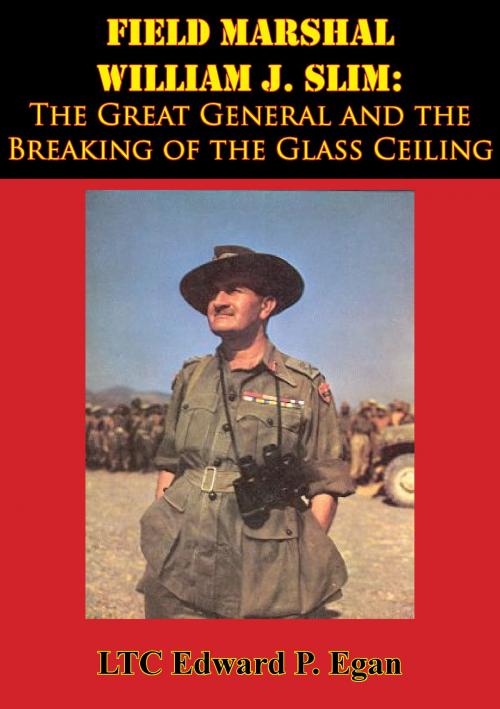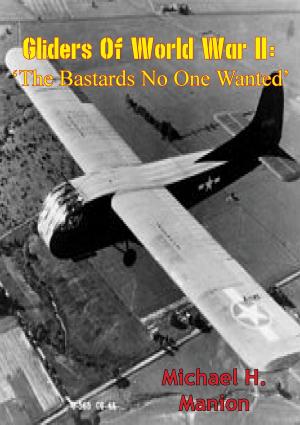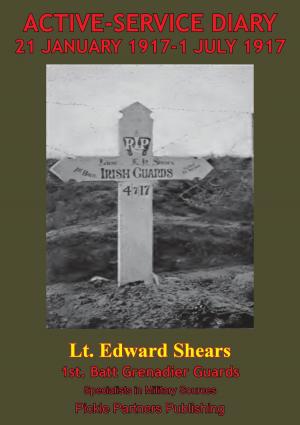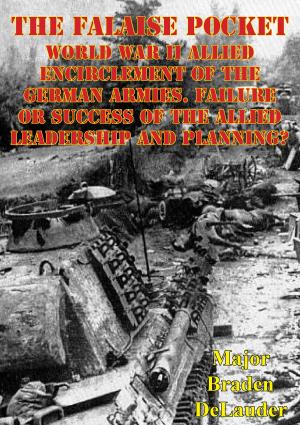From Teaching To Practice: General Walter Krueger And The Development Of Joint Operations, 1921-1945
Nonfiction, History, Germany, European General, Military, United States| Author: | Major George B. Eaton | ISBN: | 9781786253545 |
| Publisher: | Lucknow Books | Publication: | November 6, 2015 |
| Imprint: | Lucknow Books | Language: | English |
| Author: | Major George B. Eaton |
| ISBN: | 9781786253545 |
| Publisher: | Lucknow Books |
| Publication: | November 6, 2015 |
| Imprint: | Lucknow Books |
| Language: | English |
General Walter Krueger commanded the 6th Army in the Southwest Pacific Theater in World War II. As the Commander, 6th Army, he led the troops that liberated New Guinea and the Philippines and he was designated as the commander of the forces scheduled to invade Japan. Krueger’s wartime accomplishments were simply a continuation of contributions made to the United States Army and Navy over a 47 year career. Yet, despite his achievements, after the war Krueger simply faded away. Krueger’s lack of historical name recognition some 50 years after his greatest achievements deprives current officers and historians not only the knowledge of wartime exploits, but also of significant understanding of the development of joint operations doctrine in the years between World War I and World War II.
The current consensus among historians is that the United States Marine Corps was responsible for the development of amphibious operations. While true at the tactical level, this paper demonstrates that the Army and Naval War Colleges and the Army and Navy General Staffs and War Plans Divisions were key players in the development of doctrine at the strategic and operational level. General Walter Krueger attended both war colleges, served on the faculty of both war colleges, and served two tours in the Army War Plans Division, including a two year stint as its Chief. He was on the Joint Board or the Joint Planning Committee for over six years. The intent of this paper is to show Krueger’s personal influence in the development of joint doctrine.
The paper considers Krueger’s assignment history, the war plans he developed, his ideas on unity of command and the need for inter-service understanding, and his principles of war planning. It includes a case study of the Lingayen Gulf Landing in January 1945 to demonstrate the acceptance and rejection of his key ideas. The paper focuses on Army and Navy issues and considers air issues only tangentially.
General Walter Krueger commanded the 6th Army in the Southwest Pacific Theater in World War II. As the Commander, 6th Army, he led the troops that liberated New Guinea and the Philippines and he was designated as the commander of the forces scheduled to invade Japan. Krueger’s wartime accomplishments were simply a continuation of contributions made to the United States Army and Navy over a 47 year career. Yet, despite his achievements, after the war Krueger simply faded away. Krueger’s lack of historical name recognition some 50 years after his greatest achievements deprives current officers and historians not only the knowledge of wartime exploits, but also of significant understanding of the development of joint operations doctrine in the years between World War I and World War II.
The current consensus among historians is that the United States Marine Corps was responsible for the development of amphibious operations. While true at the tactical level, this paper demonstrates that the Army and Naval War Colleges and the Army and Navy General Staffs and War Plans Divisions were key players in the development of doctrine at the strategic and operational level. General Walter Krueger attended both war colleges, served on the faculty of both war colleges, and served two tours in the Army War Plans Division, including a two year stint as its Chief. He was on the Joint Board or the Joint Planning Committee for over six years. The intent of this paper is to show Krueger’s personal influence in the development of joint doctrine.
The paper considers Krueger’s assignment history, the war plans he developed, his ideas on unity of command and the need for inter-service understanding, and his principles of war planning. It includes a case study of the Lingayen Gulf Landing in January 1945 to demonstrate the acceptance and rejection of his key ideas. The paper focuses on Army and Navy issues and considers air issues only tangentially.

![Cover of the book ANZIO BEACHHEAD (22 January-25 May 1944) [Illustrated Edition] by Major George B. Eaton](https://www.kuoky.com/images/2014/august/300x300/9781782894629-iiVi_300x.jpg)


![Cover of the book Gallipoli [Illustrated Edition] by Major George B. Eaton](https://www.kuoky.com/images/2012/april/300x300/9781782890966-owHm_300x.jpg)









![Cover of the book "En L'air!" (In The Air) Three Years On And Above Three Fronts [Illustrated Edition] by Major George B. Eaton](https://www.kuoky.com/images/2012/april/300x300/9781782890836-VLpO_300x.jpg)
